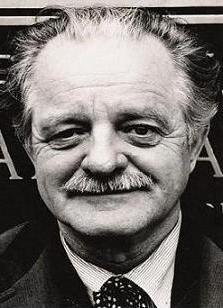A Quote by Wes Fesler
If as a family we must be selective listeners, then let us pay more attention to the words of the heart and less to the words of anger
Related Quotes
You don't realize how language actually interferes with communication until you don't have it, how it gets in the way like an overdominant sense. You have to pay much more attention to everything else when you can't understand the words. Once comprehension comes, so much else falls away. You then rely on their words, and words aren't always the most reliable thing.
I don't know that I would say words are more political now, particularly after Donald Trump has come into office. I will say that what I notice is that people pay more attention to the words that politicians use. They really want to understand the full nuance, the connotative meanings of those words.
Pay attention to your friends; pay attention to that cousin that jumps up on the picnic table at the family reunion and goes a little too 'nutty,' you know what I mean? Pay attention to that aunt that's down in the basement that never comes upstairs. We have to pay attention to our friends, pay attention to your family, and offer a hand.
From the simplest lyric to the most complex novel and densest drama, literature is asking us to pay attention. Pay attention to the frog. Pay attention to the west wind. Pay attention to the boy on the raft, the lady in the tower, the old man on the train. In sum, pay attention to the world and all that dwells therein and thereby learn at last to pay attention to yourself and all that dwells therein.
A line runs from the meditations of the heart to the words of the mouth. The meditations are not clear to us until the mouth utters its words. If what the mouth utters is unclear or foolish or mendacious, it must be that the meditations are the same. But the line runs both ways. The words of the mouth will become the meditations of the heart, and the habit of loose talk loosens the fastenings of our understanding.
Sociopaths differ fairly dramatically in how their brains react to emotional words. An emotional word is love, hate, anger, mom, death, anything that we associate with an emotional reaction. We are wired to process those words more readily than neutral, nonemotional words. We are very emotional creatures. But sociopaths listen as evenly to emotional words as they do to lamp or book - there's no neurological difference.
Now I know surely and forever,
However much I have blotted our
Waking love, its memory is still
there. And I know the web, the net,
The blind and crippled bird. For then, for
One brief instant it was not blind, nor
Trapped, not crippled. For one heart beat the
Heart was free and moved itself. O love,
I who am lost and damned with words,
Whose words are a business and an art,
I have no words. These words, this poem, this
Is all confusion and ignorance.
But I know that coached by your sweet heart,
My heart beat one free beat and sent
Through all my flesh the blood of truth.
Sometimes you can't help but pay attention to what is written about you. You are trying not to because it's generally not constructive, it can be very funny, in which case it's fine to pay attention to it if you're going to laugh about it. But if it's going to get you angry then it's a pretty pointless waste of energy, so I try and be selective about what I take an interest in about myself.
If your skin is crawling, pay attention. If something doesn’t feel right, pay attention. If the hairs on the back of your neck prickle, if your gut clenches up, if a wave of wrongness washes over you, if your heart starts beating faster, pay, pay, pay attention. Do not second-guess yourself or rationalize anything that impedes your safety. Our instincts are the animal inside of our humanness, warning us of danger.




































